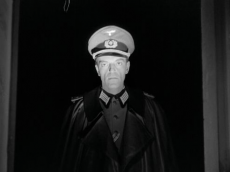
Email: nadege.preston@hotmail.com
Total Article : 82
About Me:Hi I’m Nadege and I study French at the University of Leeds, and I have just completed my third year abroad in Montpellier studying literature and enjoying the sunshine! I love art; painting and being creative, as well as photography and baking. Travelling is my favourite hobby at the moment; experiencing the French language and culture. I hope you enjoy reading some of my articles!

'Le silence de la mer' is originally a well-known French novel which was published secretly in Nazi-occupied Paris by Vercors. Vercors was Jean Bruller’s codename and he chose this codename because Vercors is located in a French region – Le Dauphiné, which served as refuge for many people who resisted. Like these people, Vercors himself was a resistor, hence why he illegally published many novels, with Le silence de la mer being his first.
The novel can be summarised briefly; it is about an uncle (the narrator), his niece and a German officer named Von Ebrennac and how the niece and uncle resist mentally against his presence in World War 2, occupied France, through the use of silence. The officer is occupying their home whilst he is in France for his duties, and he is a naïve character who loves French culture and believes that the two nations; France and Germany will be united, showing how Nazi propaganda has created his delusional thoughts. He states “Il va nous unir, comme mari et femme” - “They will unite us, like husband and wife” and this reference to marriage demonstrates his delusion, but he can’t be to blame.
There is never a word spoken by the niece and uncle to the officer, instead meaning is conveyed through their gestures and expressions, and by the end of the novel, we find out that the niece and the officer, are amorous of each other. When the officer realises Nazi-Germany’s true intentions, he wants to go to hell, and goes to fight for the Soviet-Union, thus insinuating he wants to die there. It is then that when he leaves, the niece mutters ‘Adieu’ (Goodbye) which breaks the silence and shows that she loved him though he was a German man.
Von Ebrennac becomes part of their daily routine throughout the novel, and the uncle observes and comments on what occurs. The events of the story are linked to their daily routine and therefore when Von Ebrennac doesn’t arrive home on time from his duties at the usual hour when they drink their evening coffee, they miss him. This marks the fact that towards the end of the officer’s time in the household, the uncle and the niece no longer view him as an ‘enemy’ but as a human being.
The conclusion to this novel could be that although one may not be actively resisting, you are encouraged to resist mentally and spiritually against the occupier even when the occupier may be an amicable person. Consequently, passive resistance is a strong form of resistance and shows patriotism.
The novel was also adapted into a film by Jean-Pierre Melville in 1949 which was influenced by American culture, thus giving a slightly different version of events.
IMAGE URL https://stanleyrogouski.files.wordpress.com/2014/08/silence-1.jpg

0 Comment:
Be the first one to comment on this article.